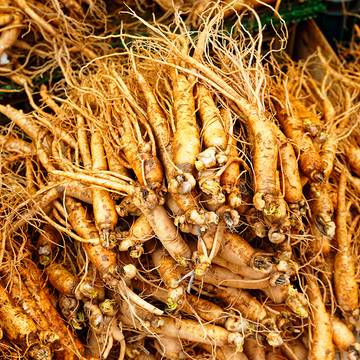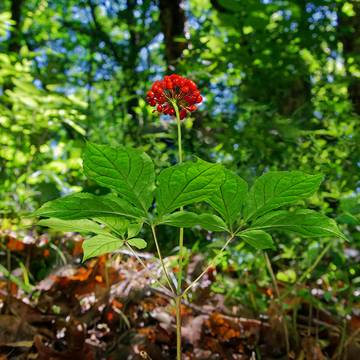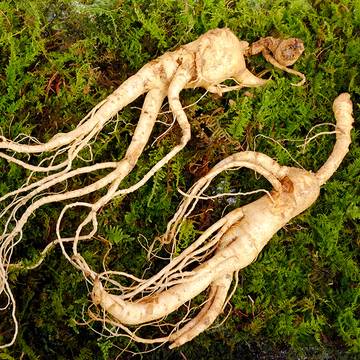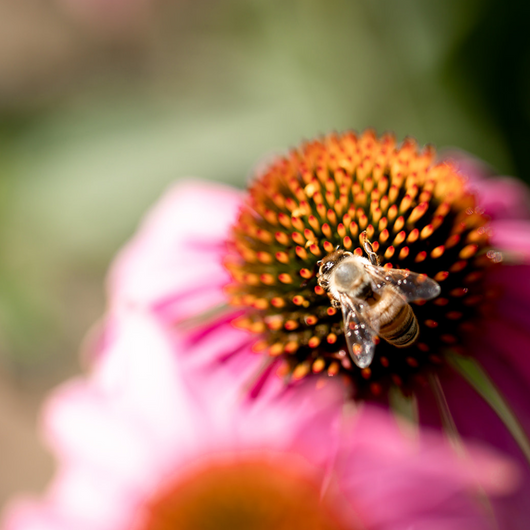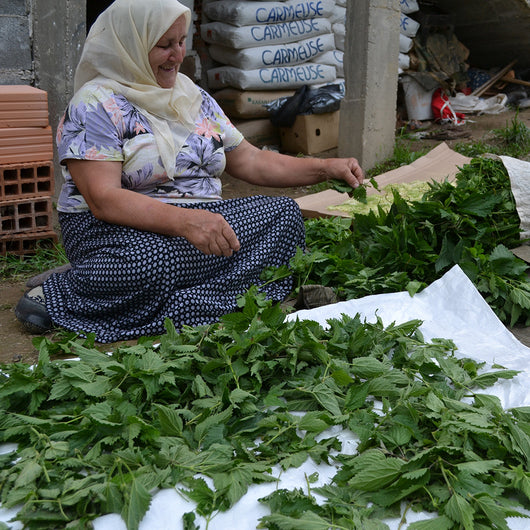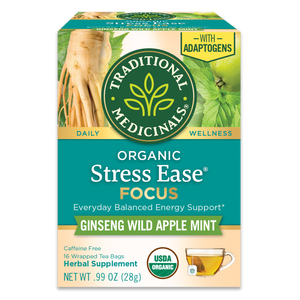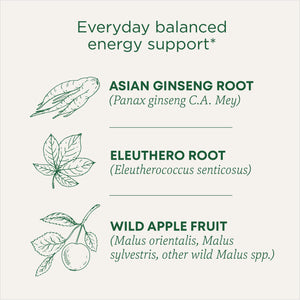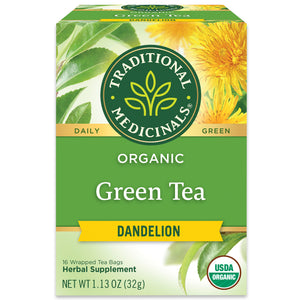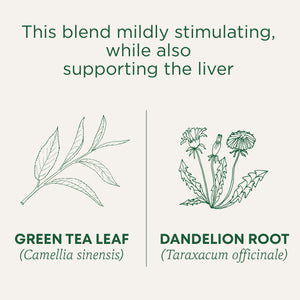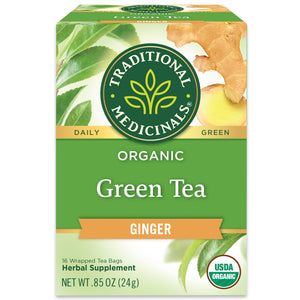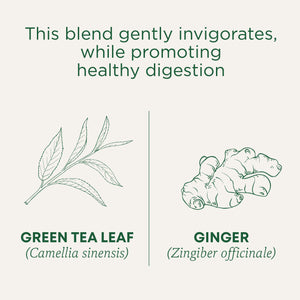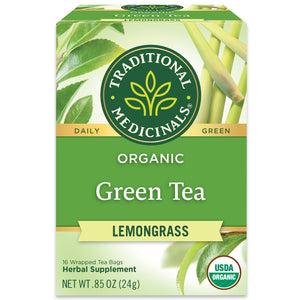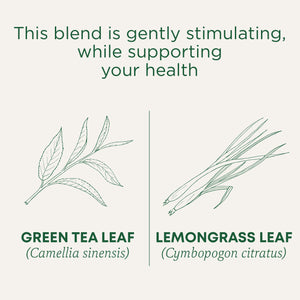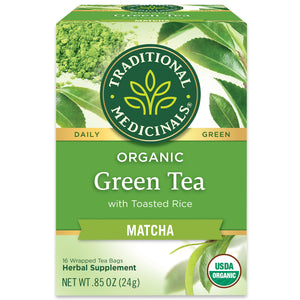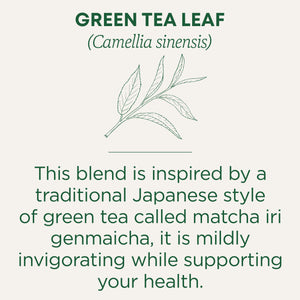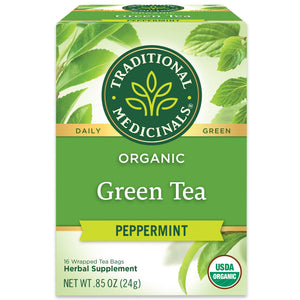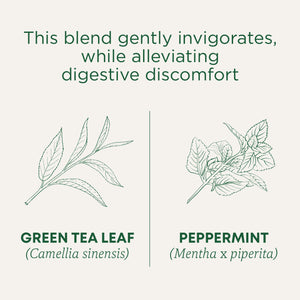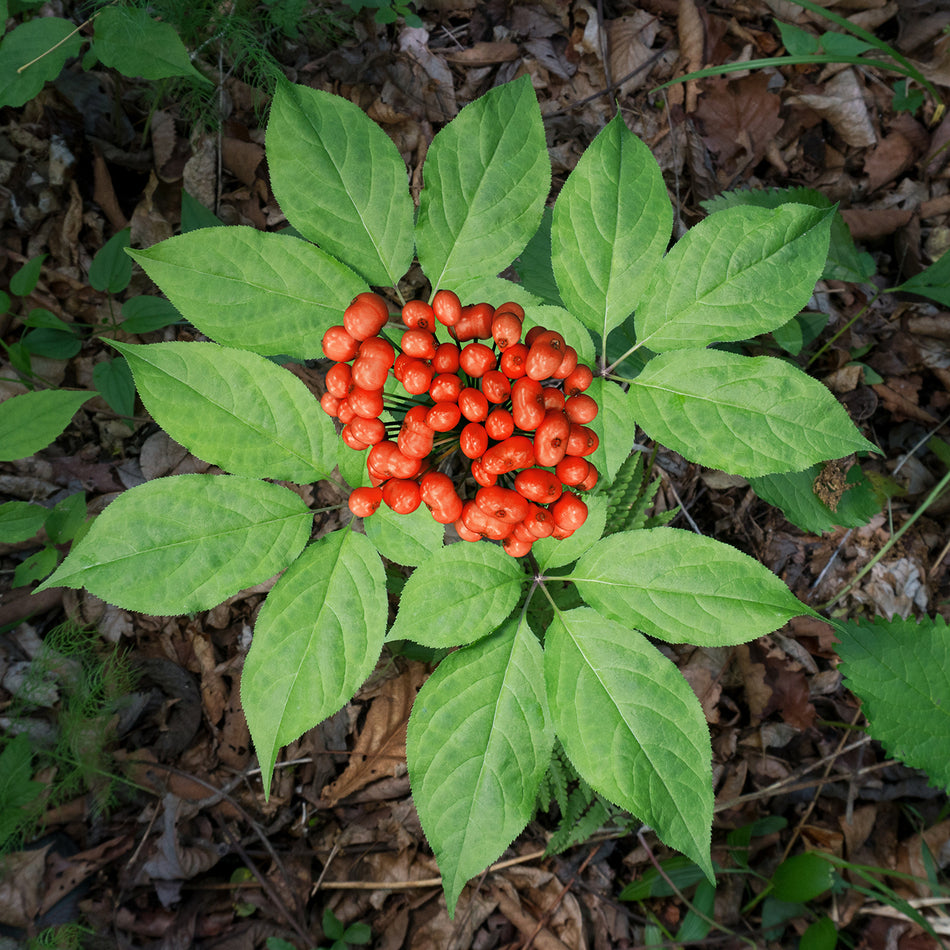
Ginseng
Panax ginseng C.A.Mey.Cherished for centuries in traditional Eastern medicine, ginseng is a powerful herbal ally for boosting vitality, sharpening cognitive function, increasing physical stamina, and more.*
Ginseng’s Latin genus name, "Panax,” means “all healing.”
What are the Benefits of Panax Ginseng?
Ginseng, a prized longevity tonic in traditional eastern medicine, has been used in herbalism and in the kitchen for time immemorial. This root is beloved throughout China, Korea, Japan, and beyond and is a staple in teas, tinctures, and capsules. It’s also a key ingredient in many Traditional Chinese Medicine (TCM) formulas. It’s generally added to restore energy and boost overall vitality, especially for those who are run down or feeling weak.
In modern herbalism, it's recognized as an "adaptogen" that aids the body in adapting to stress, sharpening cognitive function, increasing physical stamina, and boosting overall vitality. Ginseng also contains notable phytochemicals called ginsenosides, exclusive to the Panax genus. Research suggests these compounds play a crucial role in helping the body adapt to stress and offer neuroprotective benefits, which means it helps the body protect the central nervous system.*
Folklore & Historical Use of Panax Ginseng
In etymology, the sound gin stands for the word “man,” and seng essential means “essence.” In folklore, ginseng is seen as the essence of the earth in human form. The earliest known mention of ginseng as medicine was over 2,000 years ago in the "Shennong Bencaojing" (Divine Husbandman's Classic of Materia Medica), one of the oldest and most influential texts in Chinese medicine.
In Traditional Chinese Medicine (TCM), ginseng is known to have a warming effect on the body and is used to tonify Qi (vital energy). Its slightly bitter taste is believed to help clear dampness and stagnation from the body. Along with its medicinal uses, ginseng is also a popular ingredient in many Asian dishes and culinary specialties, like samgye-tang (ginseng chicken soup), insam-ju (ginseng liquor), ginseng jujube tea, ginseng stir-fry with vegetables, and more.
Botanical Description & Habitat
Ginseng’s human-shaped root is somewhat easy to identify when unprocessed in the marketplace, but when cultivated or in the wild, you can recognize it by its compound leaf structure. Typically, three to five leaflets come from a central stem, and in late summer and early fall, the plant will produce a small cluster of red berries.
Native to Asia, this prized herb is predominantly cultivated in Korea, China, and Japan, where it holds significant commercial and medicinal value. However, ginseng can be grown worldwide in suitable climates and soil conditions, especially in temperate climates with well-drained, loamy, and fertile soil. Historically, this plant has been overharvested, which is why it’s so important to cultivate it. Good things take time, and this root can take a few years to mature, which drives up the cost and the need for patience when growing it.
When To Use Ginseng
Rev your engine morning and midday to stay alert.
Sip to settle the mind and accomplish that project.
The Business of Sustainable Plants
Our business is rooted in plants, and for us, it’s a business imperative that we care for the ecosystems where these plants live and thrive. We believe that everything is interconnected, which means supporting ecosystems and the farmers and collectors who harvest and gather our herbs. Finding opportunities to reduce or eliminate emissions at the source, we support organic and regenerative farming practices as well as voluntary certifications like Organic and FairWild. These ensure the absence of pesticides, herbicides, as well as the ongoing sustainability of wild collection, and the health and livelihoods of the collectors who forage. Josef Brinckmann, Traditional Medicinals’ Research Fellow, Medicinal Plants and Botanical Supply, asserts, “Everyone has a role to play in preserving biological diversity. One way of doing that is by equitably supporting the local people to serve as stewards of the land.”
It Starts with Organic
We choose to source organic because we believe in the positive impacts it has on environmental sustainability, biodiversity, and overall ecosystem health. Organic helps us increase transparency while prioritizing consumer well-being and farmer success, which is key to producing the high-quality herbs we source. In 2021, we procured 2.73 million pounds of certified organic herbs, over 99.7% of our total botanical herbs purchased. Volumes were down slightly from FY20 due to timing of inventories received.
The impact from organic farming creates a vital ecosystem through improved soil health, water quality, pollinator habitats, and biodiversity. Organic farms also have increased carbon sequestration potential through long-term carbon storage in the soil, helping to mitigate climate change.
One of the benefits of organic that we most value is farmer health. We care deeply about the people who produce our herbs, ensuring that they are not exposed to synthetic chemicals found in conventional agriculture.
Fair Trade
We believe that everyone deserves a fair wage for hard work. That’s one of the reasons why we’re committed to fair trade. Traditional Medicinals® is a registered Fair Trade “brand holder”, “licensee” and “manufacturer,” and our products are certified by Fair Trade USA, an independent third-party certifier. We were an early adopter of Fair Trade, having launched our first fair trade tea product in 1998, just one year after Fairtrade International (FLO) was established. We continue to work closely with our network of producers to help them to implement fair trade standards and get certified.
Green Tea Peppermint
Additional Information
Important Precautions
Not recommended for use with children under 18 years of age. Discontinue use and consult a healthcare practitioner if you experience headaches, nervousness, or insomnia after taking this product. Consult a healthcare practitioner before use if you have high blood pressure, diabetes, or are taking medication to manage blood glucose levels. For best results, take a one-week break after 2 months of daily use.
Legal Disclaimer
The information and other content in this article are designed to provide a general overview of the botany, cultural history, and traditional uses of this herb. It is not intended and should not be construed as health advice. Every person is unique and you should consult with your health care provider before using any herbal product or supplement.

